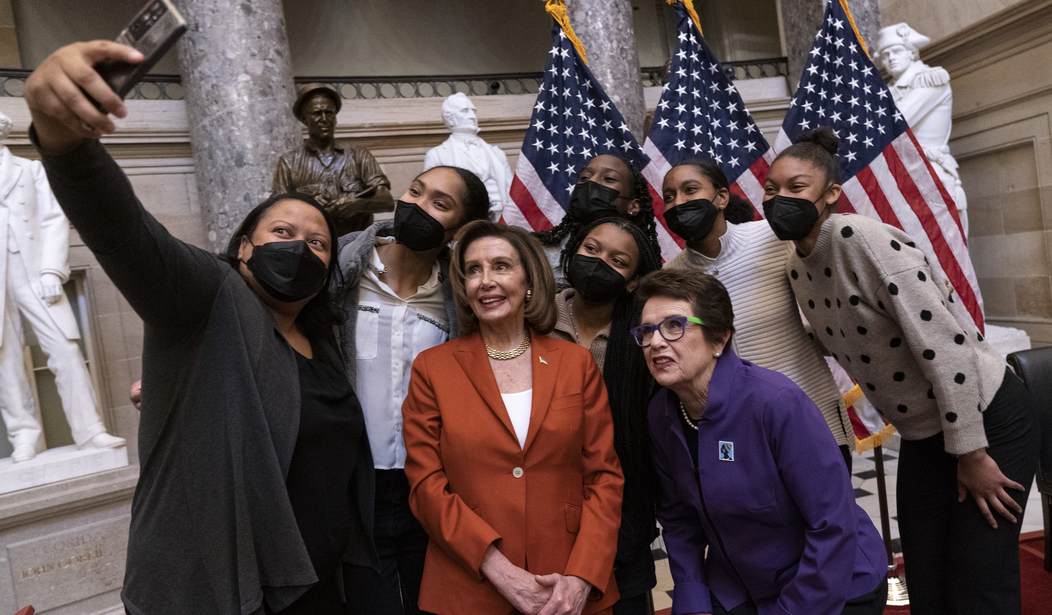(The opinions expressed in guest op-eds are those of the writer and do not necessarily represent the views of RedState.com.)
For decades, Congress has been well aware that the Social Security and Medicare trust funds are in deep financial trouble. Yet, instead of addressing the matter before it becomes too big to solve, Congress has chosen to kick the can down the road, ignoring the elephant in the room as it fixates on less pressing problems and trivial matters.
On June 3, the Social Security and Medicare Boards of Trustees issued their latest annual report on the financial status of the two giant entitlement programs. Suffice to say, things are not looking good for the future of the programs.
According to the report:
“Social Security and Medicare both face long-term financing shortfalls under currently scheduled benefits and financing. Costs of both programs will grow faster than gross domestic product (GDP) through the mid-2030s primarily due to the rapid aging of the U.S. population. Medicare costs will continue to grow faster than GDP through the late 2070s due to projected increases in the volume and intensity of services provided.”
In other words, the long-term viability of both of these programs is in jeopardy due to the simple fact that their payouts continue to surge as massive numbers of baby boomers retire and increase their utilization of Medicare benefits.
Per the report,
“The Old-Age and Survivors Insurance (OASI) Trust Fund, which pays retirement and survivors benefits, will be able to pay scheduled benefits on a timely basis until 2034, one year later than reported last year. At that time, the fund’s reserves will become depleted and continuing tax income will be sufficient to pay 77 percent of scheduled benefits.”
Translation: Congress has been derelict in its duty as financial steward of Social Security. Instead of stowing funds for the future when Social Security ran surpluses over the past few decades, Congress “borrowed” that money to spend on a slew of other items.
Over the years, Congress has “borrowed” nearly $3 trillion from Social Security. While this may have been feasible during the 1970s, 1980s, 1990s, and 2000s—when baby boomers paid more into the trust fund than outgoing benefits on an annual basis—this is no longer the case because baby boomers are retiring en masse and collecting benefits while current payments cannot sustain the promised payouts.
Moreover, as the report notes,
“The OASI and DI funds are separate entities under law. The report also presents information that combines the reserves of these two funds in order to illustrate the actuarial status of the Social Security program as a whole. The hypothetical combined OASI and DI funds would be able to pay scheduled benefits on a timely basis until 2035, one year later than reported last year. At that time, the combined funds’ reserves will become depleted and continuing tax income will be sufficient to pay 80 percent of scheduled benefits.”
This means all the Americans who have paid into the Social Security system via the payroll tax (employers and employees each pay 6.2 percent of wages, while the self-employed pay 12.4 percent) will not receive scheduled benefits after 2035. Either benefits will have to be slashed or the payroll tax will need to be increased. Either way, this is bad news for those of us who have been forced to pay into a trust fund that will be insolvent in 13 years.
Unfortunately, things are even worse when it comes to the status of Medicare.
According to the report,
“The Hospital Insurance (HI) Trust Fund, or Medicare Part A, which helps pay for services such as inpatient hospital care, will be able to pay scheduled benefits until 2028, two years later than reported last year. At that time, the fund’s reserves will become depleted and continuing total program income will be sufficient to pay 90 percent of total scheduled benefits.”
In six years, Medicare will not be able to pay its bills. Like Social Security, this means either the Medicare tax (currently 1.45 percent for employers and 1.45 percent for employees, or 2.9 percent for self-employed) will need to be raised or benefits will have to be drastically reduced.
On the bright side, there still is ample time for Congress to address these shortfalls with common sense reforms before it becomes too late. Yes, Congress has kept its head in the sand far too long while these programs have been on an unsustainable path. But, it is not too late.
For starters, Congress should shore up both programs over the short-term so that current payees do not get the short of the end of the stick via reduced payouts after they faithfully paid into the system.
Over the long-term, Congress should allow those who do not wish to participate in Social Security or Medicare the option to enroll in alternative plans, such as a privatized version of Social Security.
For many years, Congress has been aware of the inevitable insolvency of these programs. Yet, for far too long, Congress has chosen to do nothing about it. In fact, Congress has made the problem worse by constantly calling for more benefits while raiding these trust funds to cover its current profligate spending.
No wonder Congress’ approval rating is hovering near an abysmally low 20 percent.
Chris Talgo ([email protected]) is senior editor at The Heartland Institute.













Join the conversation as a VIP Member